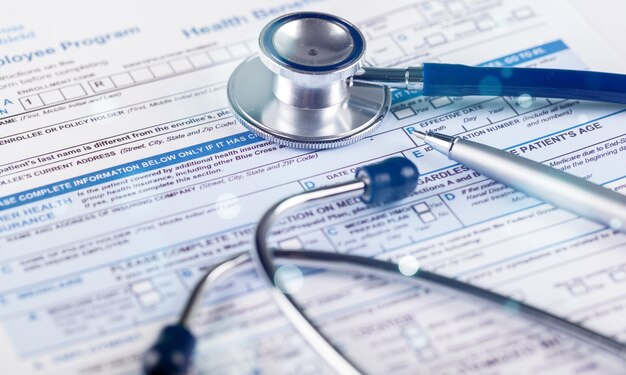Discovering Your Medicaid Status: A Comprehensive Guide
Navigating healthcare options in the United States can feel like a daunting task, particularly when it comes to understanding if you're part of crucial programs like Medicaid. This vital program helps millions of individuals and families access essential healthcare services. But how can you determine if you qualify for Medicaid or already have coverage? This guide will walk you through the process and provide practical insights into what Medicaid entails, how to check your status, and what steps to take next.
What is Medicaid and Who is Eligible?
Medicaid is a state and federally funded program designed to offer healthcare coverage to low-income individuals, including families, pregnant women, the elderly, and people with disabilities. Although Medicaid operates under federal guidelines, the specific criteria and benefits can vary from one state to another. Understanding the basics of eligibility can help clarify whether you might already be on Medicaid or if you should apply.
General Eligibility Criteria
- Income Level: Typically, Medicaid eligibility depends significantly on income, using the federal poverty level as a benchmark.
- Household Size: The number of people in your family can influence eligibility and the amount of aid you receive.
- Age and Disability: Certain groups, like the elderly or those with disabilities, may have different requirements or more extended benefits.
- Pregnancy and Parental Status: Pregnant women and parents of minors may have different income thresholds.
State-Specific Guidelines
- Each state customizes its Medicaid program, so it’s crucial to research the specific rules applicable in your state to see if you qualify.
How to Check If You Have Medicaid
Once you understand basic eligibility, the next step is confirming whether or not you are currently enrolled in Medicaid.
Checking Your Status
1. State Medicaid Office
Every state has a Medicaid office where you can directly inquire about your enrollment status. This is often the most reliable and immediate source of information.
2. Online Portals
Most states offer online portals where residents can check their Medicaid status after creating an account.
- Create or log into your account: This typically requires personal information and verification.
- Check your account status: Look for notifications or details about your current Medicaid coverage.
3. Calling the Medicaid Hotline
Each state has a Medicaid hotline that can help confirm your status. This process can be quicker if you're unable to access your information online.
4. Healthcare Provider Verification
Sometimes, your healthcare provider can verify your Medicaid status if they have records of your past visits or treatments covered under Medicaid.
Understanding Your Medicaid Benefits
Once you confirm your enrollment, it’s essential to grasp the benefits available to you under Medicaid. This understanding enables you to maximize your healthcare coverage and access the necessary services.
Typical Medicaid Benefits
- Primary and Preventive Care: Regular check-ups, screenings, and immunizations.
- Hospital Services: Inpatient and outpatient hospital services, including surgery.
- Emergency Services: Coverage for urgent healthcare needs.
- Maternity and Newborn Care: Comprehensive coverage for expecting mothers.
- Prescription Drugs: Assistance with medication costs.
- Long-term Services: Home health services and nursing facility care for eligible individuals.
Additional Services
Some states might offer added benefits such as vision, dental, or mental health services. Therefore, it’s advisable to inquire about available benefits specific to your state.
What to Do If You Aren’t Covered
Checking and understanding your Medicaid status are only portions of the process — knowing what steps to take if you're not covered or if your application is pending can be equally crucial.
Pending Applications
- Follow-up: Contact your state’s Medicaid office or check their online portal to see the status of your application.
- Provide Additional Documents: If requested, submit any additional documentation promptly to avoid delays.
Denied Applications
- Understand the Reason: Ascertain why you were denied to address issues directly.
- Appeal the Decision: Each state offers an appeal process if you believe your application was incorrectly denied.
- Seek Assistance: Consider seeking help from legal aid services or community health organizations for guidance on how to proceed.
Key Points to Remember
- Keep Personal Records: Maintain records of any communication with Medicaid offices or healthcare providers to resolve any discrepancies promptly.
- Regular Re-Evaluation: Your eligibility could change with changes in income or household size, so regular reassessment is essential.
- Maximize Benefits: Familiarize yourself with all available benefits to use Medicaid effectively.
Visual Summary: Medicaid Enrollment Checkpoints
Here's a quick checklist to help ensure you're taking the right steps to check your Medicaid status:
📝 Checklist to Verify Your Medicaid Enrollment
- ✅ Contact State Medicaid Office: Confirm your status directly.
- 🌐 Check Online Portals: Fast verification right from your home.
- 📞 Call Medicaid Hotline: Get direct phone assistance.
- 🩺 Consult Healthcare Providers: They may verify your coverage.
- 🔍 Review Benefits: Know what services you can access.
- 📄 Stay Updated: Regularly re-evaluate eligibility and coverage.
Understanding your Medicaid status doesn’t need to be a challenging process. By following these strategies and leveraging available resources, you can confidently determine your current standing and move toward obtaining or maximizing your healthcare coverage. Whether it’s confirming enrollment or understanding your benefits, knowing these details is crucial to ensuring that you and your family have access to necessary healthcare services.

Related Topics
- A/r Medicaid
- Am I Eligible For Medicaid
- Am I Qualified For Medicaid
- Are Illegal Aliens Eligible For Medicaid
- Are Illegal Immigrants Eligible For Medicaid
- Are Medicaid Payments Frozen
- Are Medicare And Medicaid Social Insurance
- Are My Children Eligible For Medicaid
- Are Trusts Exempted From Ssi And Medicaid
- Are Undocumented Immigrants Eligible For Medicaid
